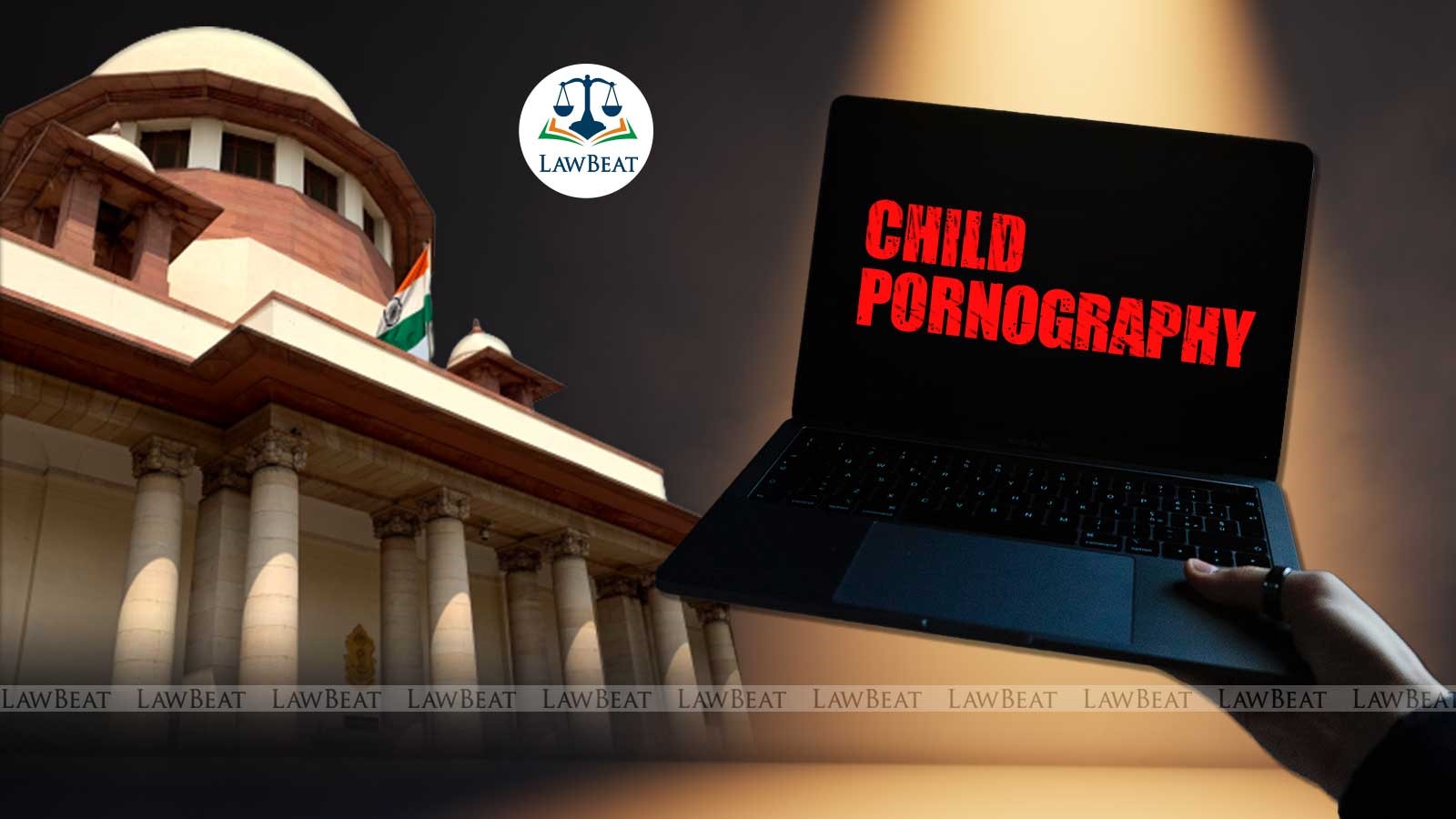Storage or possession of child pornographic material an offence under POCSO: Supreme Court

"Any act of viewing, distributing or displaying etc., of any child pornographic material by a person over the internet without any actual or physical possession or storage of such material in any device or in any form or manner would also amount to ‘possession’ in terms of Section 15 of the POCSO, provided the said person exercised an invariable degree of control over such material, by virtue of the doctrine of constructive possession", court has said
The Supreme Court of India, in a landmark verdict has held that mere storage or possession of any pornographic material involving a child when done with a specific intent, without requiring any actual transmission, dissemination etc, is an offence under the Protection of Children from Sexual Offences Act, 2012.
Referring to Section 15 of the POCSO Act, a bench of CJI DY Chandrachud and Justice JB Pardiwala has held, "The mens-rea or the intention required under this provision is to be gathered from the actus reus itself i.e., it must be determined from the manner in which such material is stored or possessed and the circumstances in which the same was not deleted, destroyed or reported. To constitute an offence under this provision the circumstances must sufficiently indicate the intention on the part of the accused to share or transmit such material.".
Court has further held that if the police as well as the courts while examining any matter involving the storage or possession of any child pornography, finds that a particular sub-section of Section 15 is not attracted, then it must not jump to the conclusion that no offence at all is made out under Section 15 of the POCSO.
"Any visual depiction of a sexually explicit act which any ordinary person of a prudent mind would reasonably believe to prima facie depict a child or appear to involve a child, would be deemed as ‘child pornography’ and the courts are only required to form a prima facie opinion to arrive at the subjective satisfaction that the material appears to depict a child from the perspective of any ordinary prudent person for any offence under the POCSO that relates to child pornographic material, such as Section 15.....", the judgment adds.
Senior Advocate Swarupama Chaturvedi appeared for the National Commission for Protection of Child Rights, which had filed an intervention in the present issue. Their suggestions have also been incorporated by Justice Pardiwala, who acknowledged the same.
Top court has also set aside the Madras High Court's judgment quashing the case registered against a 28-year-old man for downloading child pornography. "We are left with no other option but to set aside the impugned judgment and order passed by the High Court, and restore the criminal proceedings in Spl. S.C. No. 170 of 2023 to the court of Sessions Judge, Mahila Neethi Mandram (Fast Track Court), Tiruvallur District....", the supreme court has ordered.
The man was booked for the offences under Sections 67-B of the Information Technology Act, 2000, and 14(1) of the Protection of Child from Sexual Offences Act, 2012.
Madras High Court in the impugned judgement had observed that Generation Z children are grappling with the serious problem of porn addiction. It added that instead of damning and punishing them, "the society must be mature enough to properly advise and educate them and try to counsel them to get rid of that addiction". The bench of Justice N Anand Venkatesh stressed that such education must start from the school level since exposure to adult material starts at that stage itself.
Case Title: JUST RIGHTS FOR CHILDREN ALLIANCE & ANR. vs. S. HARISH & ORS.
